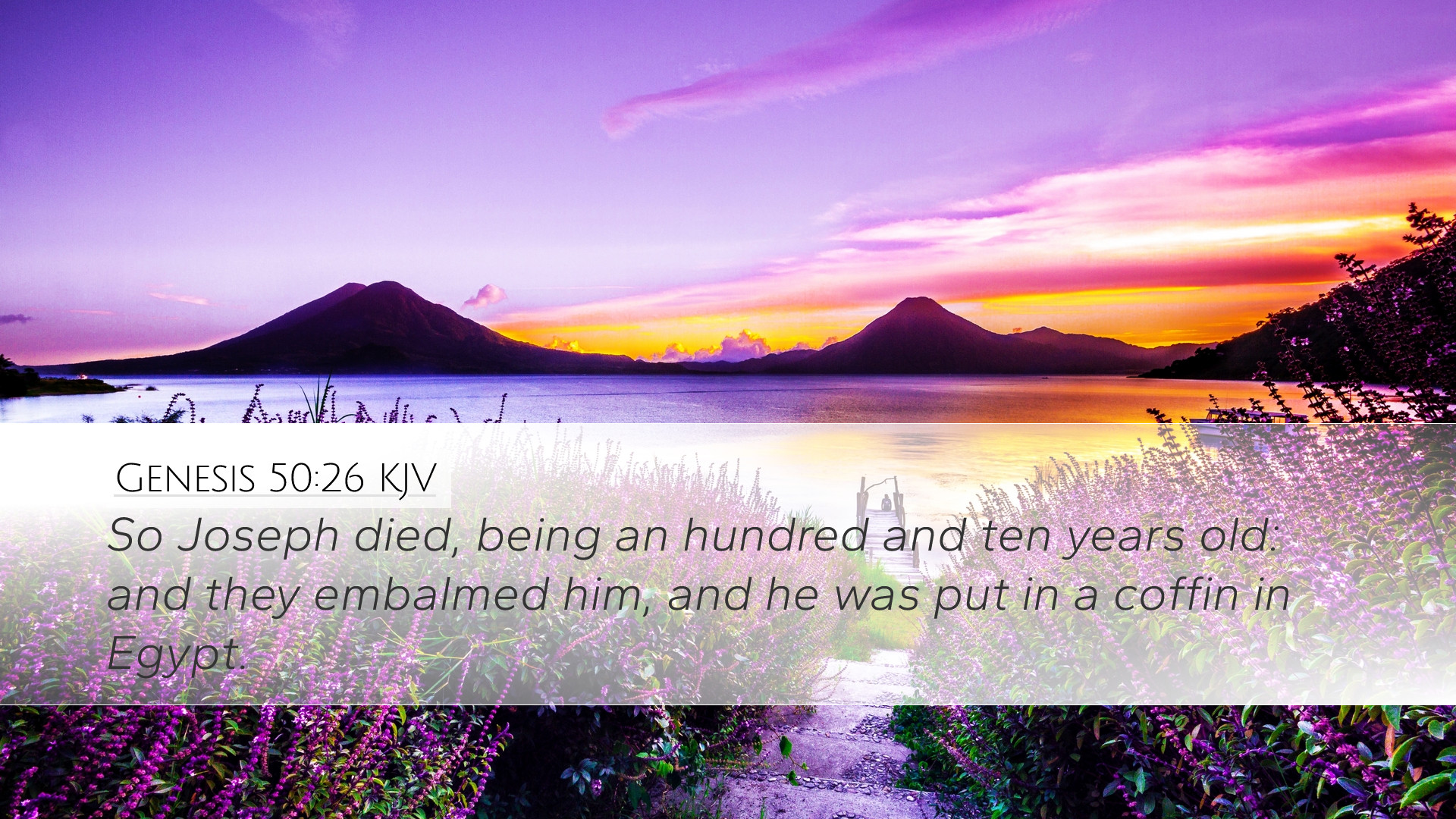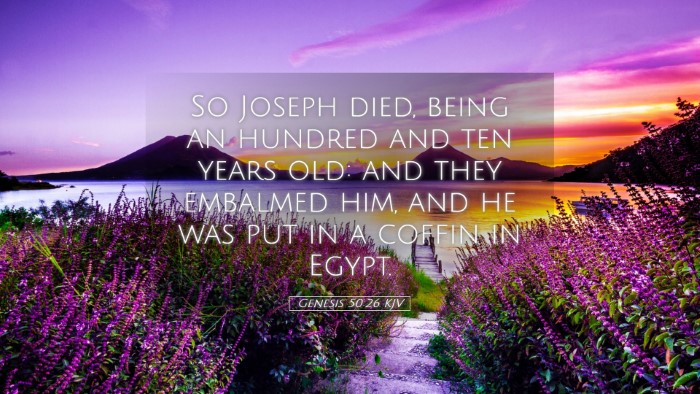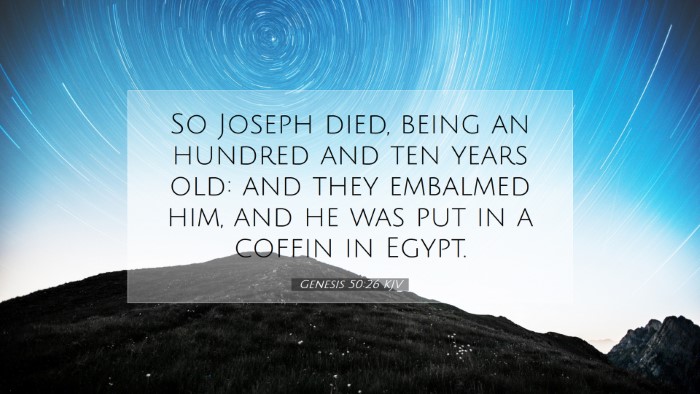Contextual Overview
The conclusion of the Book of Genesis provides a poignant reflection on the life of Joseph, one of the patriarchs. This verse encapsulates the end of his story, emphasizing his death, embalming, and burial practice in Egypt. This moment serves not only as a conclusion for Joseph's narrative but also as a bridge to the future events of Israel's journey in Egypt.
Commentary Insights
Drawing from insights from public domain commentaries, we can unpack several significant themes and theological implications inherent in this verse.
1. Joseph’s Age and Life Span
This verse notes Joseph's age at death—110 years—marking him as having lived a long and fruitful life. Matthew Henry comments on how the number of years demonstrates divine favor and the completion of a life full of significant events according to God's providence. Joseph’s life spanned turbulent times, yet he remained faithful, serving God's purposes.
2. Embalming Practices
The process of embalming symbolizes the Egyptians’ respect for the dead. The act is rich with cultural significance—as reflected in Clarke's commentary, which indicates that embalming was a common practice to preserve the deceased for the afterlife in Egyptian belief. This points to the cultural intersection of Joseph's Hebrew identity and his life in Egypt.
3. The Coffin in Egypt
Being placed in a coffin rather than buried in the land of Canaan illustrates both the acceptance and the duality of Joseph's position. Albert Barnes notes that while he was beloved by his family and had a heart towards Canaan, he chose to fulfill God's plan within the Egyptian context. This coffin symbolizes Joseph's mixed legacy—as both a servant of God and a ruler in a foreign land.
4. Prophetic Foreshadowing
Joseph's request to be buried in Canaan—as mentioned in earlier verses—contains a foreshadowing element. Henry discusses how Joseph’s embalming and coffin foreshadow Israel's eventual return to the Promised Land. This underscores the themes of hope and eventual redemption for the Israelites, who would remain in Egypt for many generations.
5. Theological Reflections
This verse invites theological reflection on death and legacy. Joseph’s passing concludes a significant chapter in biblical history, marking the transition from the patriarchs to the Exodus narrative. Clarke emphasizes God's sovereignty in orchestrating Joseph's life and death for His greater plan, reinforcing the notion that even death serves God's purpose.
6. Lessons for Believers
For contemporary believers, Joseph's story reminds us of the importance of maintaining faith amidst uncertainty. As noted by Barnes, the assurance of God's promises sustained Joseph through trials and tribulations, culminating in a life defined by service rather than mere survival. His burial in Egypt stands as a powerful testament to faith in God’s overarching plan—even when circumstances seem dissonant.
Conclusion
Genesis 50:26 serves as a profound conclusion to the life of Joseph while simultaneously opening new avenues in the narrative of the Israelites in Egypt. This commentary outlined the significance of Joseph's age, embalming practices, and the implications of his burial in a coffin. Each element invites pastors, theologians, and students to consider God's sovereign operations, the nature of faith, and the promise of redemption that lies between the lines of this powerful scripture.


